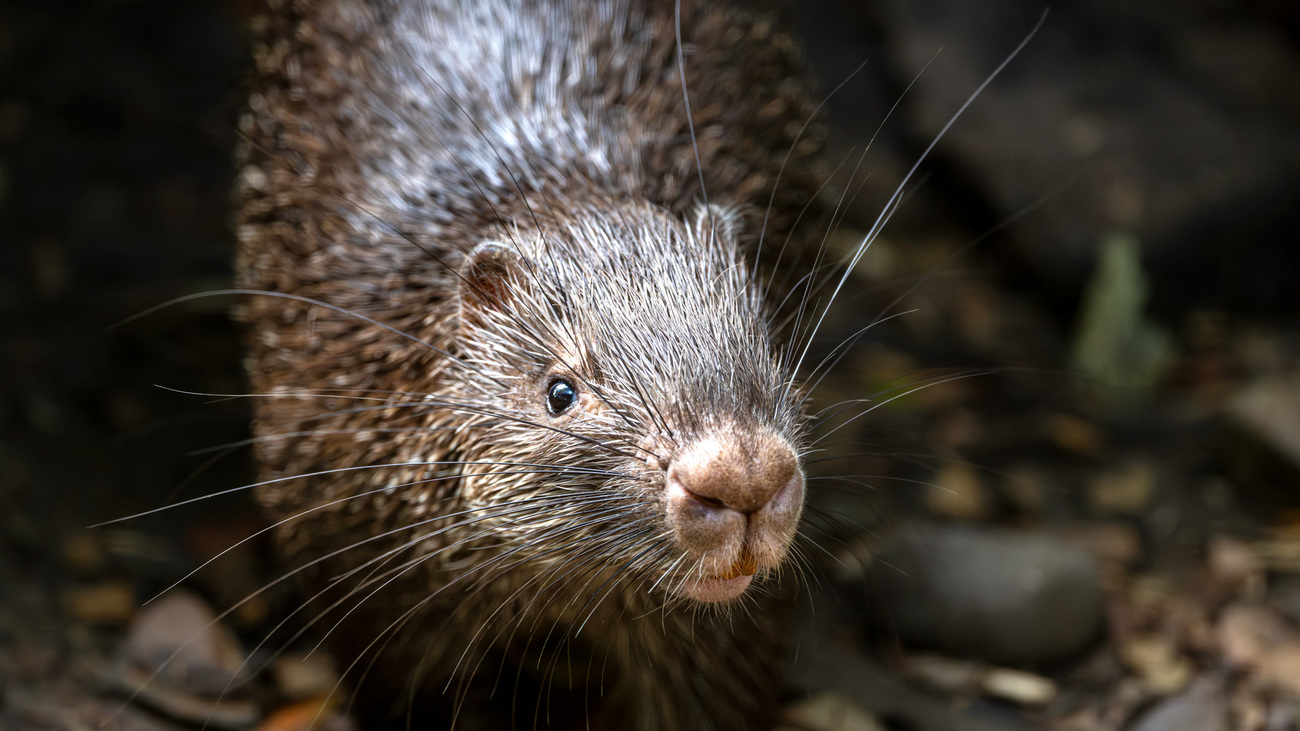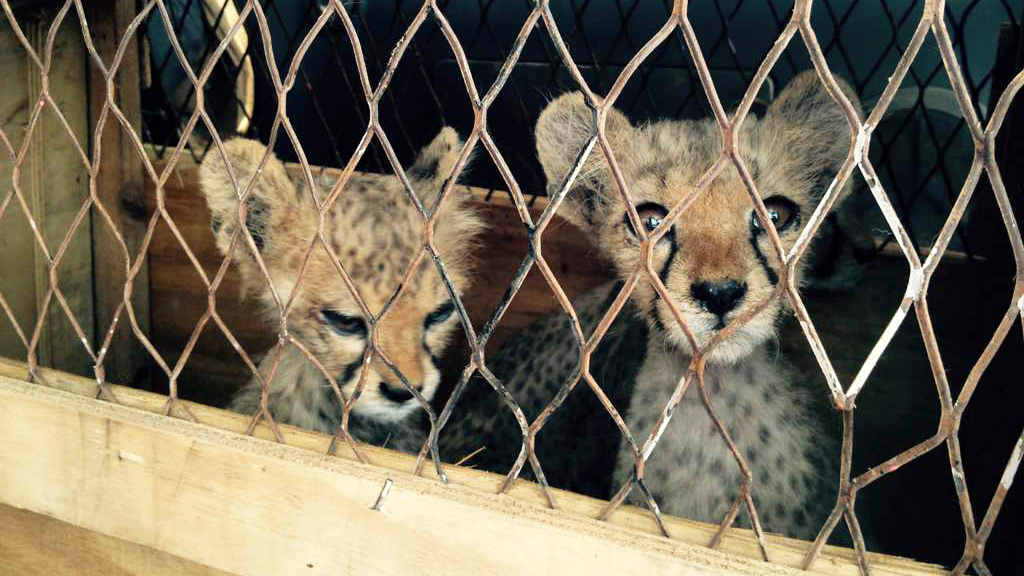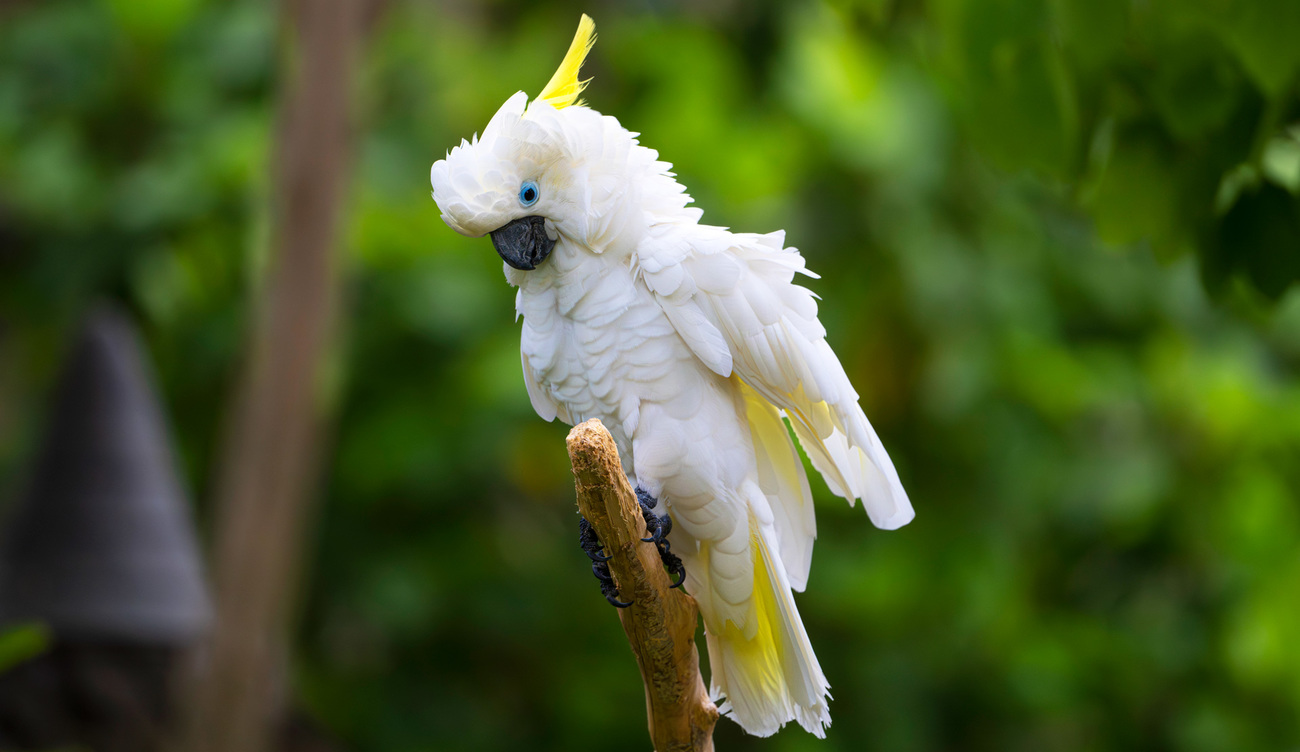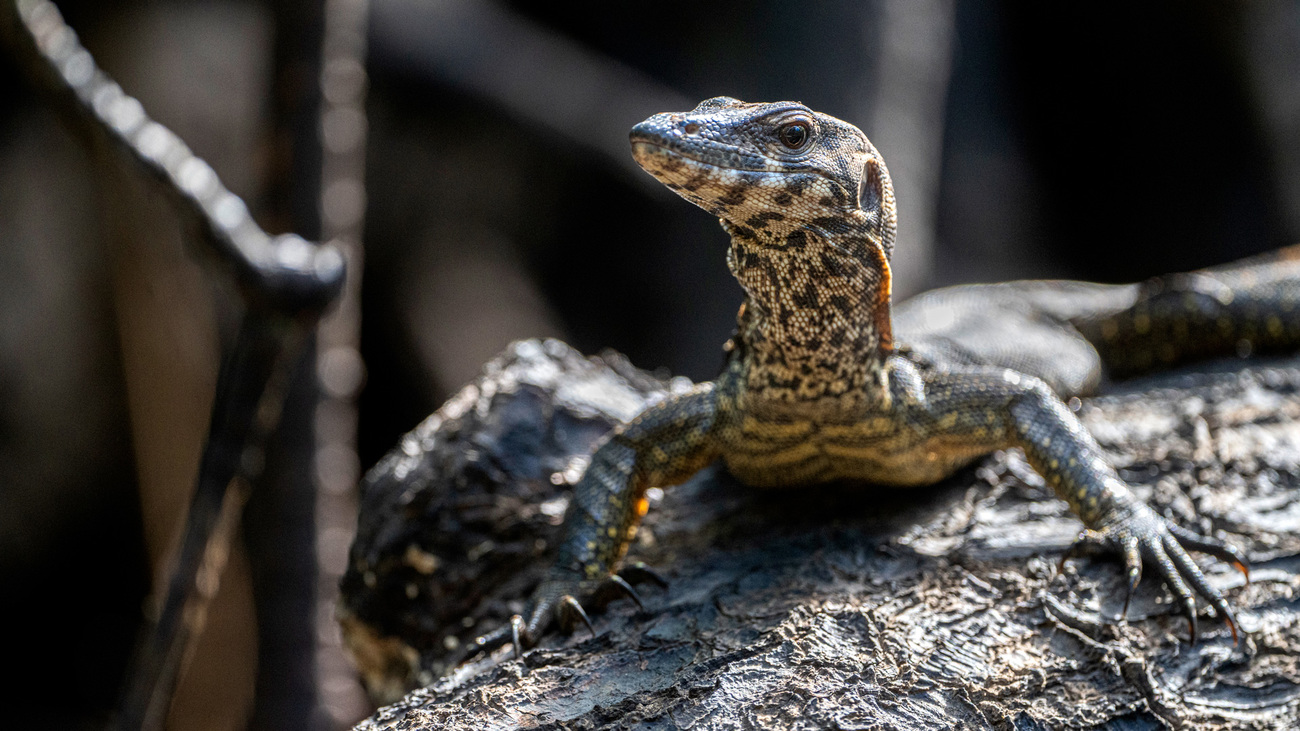Live Animals Seized in Trade - Global
Stopping smugglers is the first step, rescuing animals is the nextFacts about exotic pets: wild animals held in captivity
Facts about exotic pets: wild animals held in captivity
The exotic pet trade is surging around the world. Each year, more and more exotic animals are making their way into people’s homes and being featured in online videos that are widely viewed and shared on social media. It might look sweet to cuddle up with a baby chimp or tickle a slow loris, but most videos don’t capture the truth about what it’s really like to live with one of these animals—or how their popularity helps drive a dangerous and illegal pet trade.

The illegal wildlife trade doesn’t just impact the animals being sold as exotic pets, either. Most tangibly, trade impacts the wildlife, the people who protect them, and even those of us at home when it comes to exposure to zoonotic diseases. But on a grand scale, the exotic pet trade threatens biodiversity and the health of our planet’s ecosystems..
As a conservation and rescue organisation, IFAW works to protect animals and communities around the world. Our work involves preventing wildlife crime and trafficking. We partner with companies, governments, and law enforcement to stop wildlife criminals in their tracks and prevent fewer animals from being taken from their natural habitats.
What are exotic pets?
There are several ways to define exotic pets. At IFAW, we consider an exotic pet to be any wild, non-domesticated animal that’s kept as a pet. For instance, a tiger, a python, a cockatoo, or a box turtle would all be considered exotic pets. Most animals that aren’t cats, dogs, or farm animals fall into this category.
Exotic pets are animals that are illegally traded, could spread diseases to other animals or humans, are likely to experience poor welfare in captivity, are concerning from a conservation perspective, and/or pose a risk to people’s safety.
Is it illegal to own exotic pets?
While rules differ among different parts of the world, owning an exotic pet is not an ethical choice. Many countries and local jurisdictions have laws banning certain types of animals as pets, but ultimately, wild animals should never be kept in captivity as pets.
Should exotic animals be kept as pets?
Wildlife trafficking is a multi-billion-dollar business. Each year, tens of millions of wild animals are captured and sold to buyers around the world for a variety of reasons. They don’t all become exotic pets—some are eaten, put on display, or used to make clothing—but the vast exotic pet market helps keep demand high. So, no matter what your country allows you to own, buying an exotic pet could be fueling an illegal business.
Some animals are intentionally mislabeled and sold as ‘legal’. Since the origin of an animal can render its sale and ownership in violation of the law, individuals who have illegally taken animals from the wild will often falsely label them as ‘captive-bred’ so they comply with industry import/export requirements. No matter what the label says, it can sometimes be hard to discern the true origin of a wild animal or potential future exotic pet due to the frequent practice of false labelling. As seen in an example involving the illegal exportation of reptiles from the US, violators conspired to falsely label wildlife in order to avoid detection while smuggling animals out of the country.

How does the exotic pet trade harm animals?
The exotic pet trade can be notoriously harmful to the animals that are captured and sold. Many die in transit, as they may be transported in unsafe, makeshift hiding places, poorly fed, or otherwise improperly handled. If they survive, they often end up in cramped spaces far from their natural habitats and other members of their species.
The capture of wild animals also harms their natural ecosystems. African grey parrots, for instance, have almost gone extinct in Ghana thanks to the exotic pet trade. Their total wild population declines by up to 21% each year due to capture for the pet trade. Capturing animals for live trade also often results in the deaths of many other members of their species. For instance, to take a young chimpanzee from the wild, 25 or more adult chimps are often killed. This can seriously threaten the survival of species that are already threatened by other issues, too. Even animals that aren’t being poached can be indirectly affected as the decline of other species throws their ecosystem out of balance.
Then there’s the harm exotic pets can cause if they escape or are released into the wild. If an animal ends up in a place where it has no predators, it can reproduce and wreak havoc on the natural ecosystem. This is what happened with the Burmese python, which is native to Southeast Asia and arrived in Florida as a popular pet. A few pythons got loose, and now there are thousands of them in the Everglades, competing with native animals for food and preying on endangered species.
Why is it bad to keep exotic animals as pets? What are the risks to humans?
Many wild animals carry viruses and bacteria that can spread to humans if we interact with them too closely. These days, scientists estimate that around three out of every four new infectious diseases come from contact between humans and wild animals. These diseases, called zoonotic diseases, include some of the most deadly and infamous diseases such as HIV, Ebola, and SARS.
These germs don’t always make the animals sick; that means even if an exotic pet seems healthy, it could be carrying diseases that would make a human sick, like salmonella, Lyme disease, or coronavirus.
Exotic pets can be dangerous for other reasons too. As adorable as they might be when they’re little, they still have their wild instincts that can come out unexpectedly. Animals that once seemed sweet and cuddly, like tiger cubs or baby chimps, can quickly turn ferocious—and once they get big and strong, they’re not easy to handle safely.
What’s the downside of owning an exotic pet?
Exotic pets are wild—they have a wild nature, and they belong in the wild, not in people’s homes or in cages. They were not domesticated over thousands of years like dogs, cats, horses, sheep, and other animals that humans have bred specifically for domestic purposes.
Exotic pets are expensive and require care that humans cannot provide. Regardless of the initial price to purchase them, their lifetime care can be very costly. They require specialised diets and veterinary care. If your dog gets sick, you can generally go to any vet and get help. If a chimpanzee gets sick, you would need to shell out for a specialist—or maybe you wouldn’t find one in your area at all. Owning a wild animal as a pet means you’re taking its welfare into your own hands, rather than allowing it to thrive in the wild where it can meet all of its own needs—physical and psychological.
The food exotic pets require to be healthy can also be hard to come by, and many exotic animals need far more space than they get in an average home. Some, like reptiles, also need special heat and humidity levels that can be challenging to maintain. And whereas a dog might be perfectly happy socialising only with humans, many other species have social needs that can’t be met in isolation.
On top of that, many exotic pets, like reptiles and parrots, live long lives compared to dogs or cats, some upwards of 60 or 70 years. Taking care of them can be a lifelong commitment, costing tens or hundreds of thousands of dollars. Many exotic pets like these become abandoned when their owners can no longer care for them, which presents a threat not only to their lives but also to the ecosystems into which they are released.
Ultimately, living with a domestic animal tends to be much better for the pet owner and the pet.

Thinking of buying an exotic pet?
Maybe you’ve been charmed by a TikTok video of a big-eyed creature adorably eating a carrot or being combed to sleep with a toothbrush.
But consider what it would take to care for this pet, and how owning it could harm the animal, the planet, your wallet, and even you. This is why IFAW fights against the exotic pet trade.
What is IFAW doing to combat wildlife trafficking?
To tackle wildlife trafficking, we aim to cover all the bases:
- Stopping poachers
- Training enforcers to safely intercept animals being smuggled across borders
- Helping find new, safe homes for live animals seized in trade
- Preventing exotic pets from being advertised online
- Reducing demand for exotic pets through education campaigns
Here’s a little more about our projects:
Stopping poachers in their tracks
We work with local communities and park rangers to stop poaching at its source. We’ve supported agencies across borders to share their intelligence and resources. We’re also ensuring that teams on the ground have all of the training, equipment, and infrastructure they need to combat poaching effectively.
Seizing animals in transit
For animals that slip through the net, we’re working with the law enforcement officials who are responsible for seizing wildlife being smuggled across borders.
Without established procedures, proper training, and the right equipment, these animals endure even more suffering. They’re sent to unprepared and under-resourced facilities and are rarely returned to their original homes. But thanks to our Live Animals Seized in Trade (LAST) project, law enforcement officials are learning best practices on what to do when they seize an animal destined for the exotic pet trade.
Animals are now sent safely to our network of rescue centres and sanctuaries where they can recover. Meanwhile, we work with wildlife authorities and the scientific community to identify the animal’s original habitat and, if possible, return the animal home.
In a similar project, we’ve worked together with nine other organisations to produce practical guidelines for all shipping supply chain participants. The guidelines give advice on the measures to take and the questions to ask to help identify criminal wildlife trade.
Clamping down on exotic pet adverts
Animal smugglers find it easier than ever to connect with consumers. In one study, we found more than 30,000 animals—including animal parts and live animals—in online adverts in just six weeks. That’s why IFAW has pushed to make the EU Digital Services Act (DSA) a reality. This EU-wide regulation makes it harder for animal smugglers to advertise exotic pets online.
Online platforms now have a greater responsibility to conduct random checks and to verify whether online ads for exotic pets are legal. They also have to empower users to report illegal online content.
Since we helped launch the Coalition to End Wildlife Trafficking Online in 2018, the project has successfully blocked or removed over 24.1 million listings that violated wildlife laws. Listings included adverts for live big cats, reptiles, primates, and birds.

Promoting behavioural change
There’s a large market for exotic pets. So we’re working to change that, too. We’ve designed public awareness and behavioural change campaigns that teach people about wildlife crime and its impact.
These campaigns are helping to reduce demand for live wild animals at the other end of the animal trafficking supply chain.
Related content
Our work can’t get done without you. Please give what you can to help animals thrive.